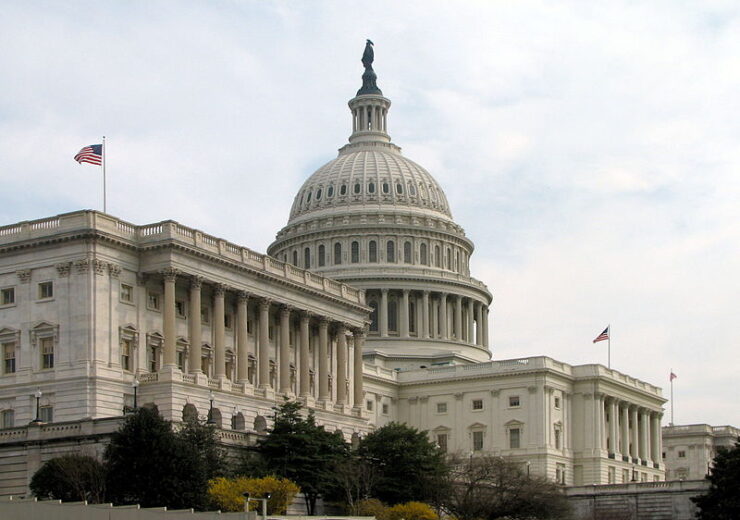The bill includes $52.7bn of funding to help in the construction and expansion of semiconductor manufacturing facilities and other programmes

The $280bn CHIPS and Science Act bill has been approved by the Senate. (Credit: Scrumshus/Wikipedia.org)
The US Senate has approved the CHIPS and Science Act bill for providing $280bn in subsidies and research funding with an aim to increase the competitiveness of the country in the fields of semiconductors and advanced technology.
Under the CHIPS and Science Act of 2022, the construction and expansion of semiconductor manufacturing facilities and other programmes will get direct financial assistance of up to $52.7bn. CHIPS expands to ‘Creating helpful incentives to produce semiconductors’.
The bill will provide $200bn of funding for scientific research, particularly in artificial intelligence (AI), quantum computing, robotics, and other cutting-edge technologies.
US President Joe Biden said: “As Americans are worried about the state of the economy and the cost of living, the CHIPS bill is one answer: it will accelerate the manufacturing of semiconductors in America, lowering prices on everything from cars to dishwashers.
“It also will create jobs – good-paying jobs right here in the United States. It will mean more resilient American supply chains, so we are never so reliant on foreign countries for the critical technologies that we need for American consumers and national security.”
As per the Senate, $50bn will be earmarked over five years for a CHIPS for America Fund. The funding has to be utilised for implementing the Commerce Department semiconductor incentive, which is for developing capability for domestic manufacturing and research and development (R&D) as well as workforce development programmes.
The US government will allocate $2bn for a CHIPS for America Defense Fund. The funding will be assigned to the Microelectronics Commons, which is a national network for onshore, university-based prototyping, lab-to-fab transition of semiconductor technologies. The funding will be available for the unique applications of the Department of Defense and training of semiconductor workforce among others.
An amount of $500m will be made available by the federal government for a CHIPS for America International Technology Security and Innovation Fund. This will be allocated to the Department of State over five years for coordinating with foreign government partners to underpin international information and communications technology security as well as activities in the semiconductor supply chain.
The government will provide $200m for a Creating Helpful Incentives to Produce Semiconductors (CHIPS) for America Workforce and Education Fund. This will be given to the National Science Foundation to encourage the growth of the semiconductor workforce.
The second component of the CHIPS and Science Act bill allocates around $170bn for technology research and development at various federal agencies in the next five years.


